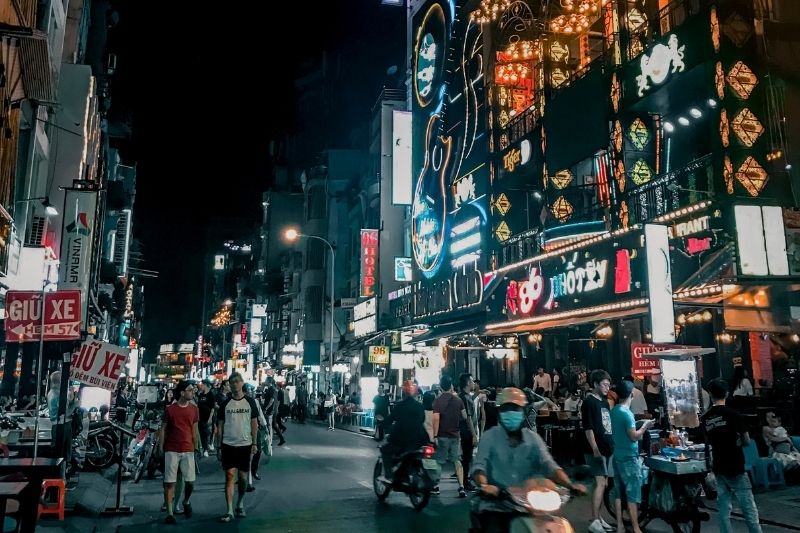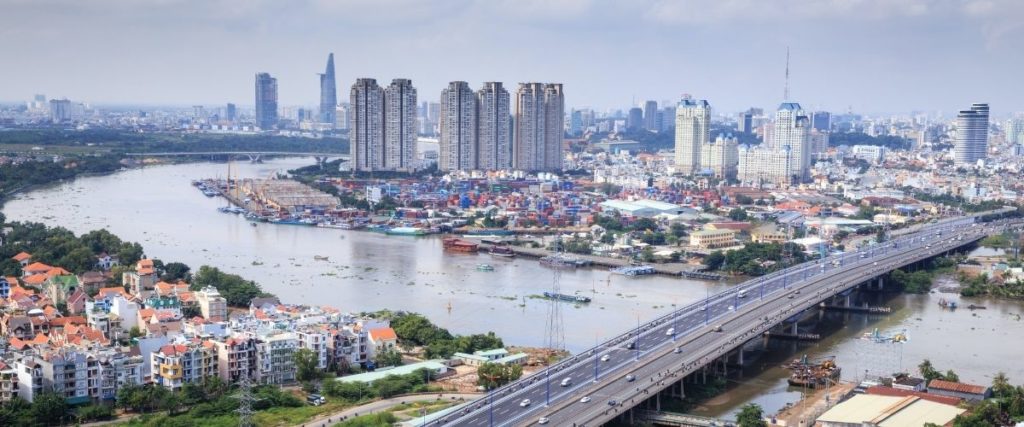Vietnam is already well on its path to economic recovery post-pandemic, solidifying its status as one of the fastest-growing economies in Southeast Asia. Moreover, the growth prospects of foreign investment in the country have presented a striking appeal to global investors. This article will provide you with resources to assist you to form a successful market entry strategy while investing in Vietnam.
Vietnam has set an ideal stage for Foreign Direct Investment owing to its strategic location in the heart of Southeast Asia and proximity to some of the world’s busiest shipping lanes. With its rapid economic growth and favourable policies to boost the investment climate, it is expected that international investors will return to Vietnam in the coming years once travel restrictions are removed
However, for investors looking to expand in Vietnam, it is imperative that they conduct thorough research in order to develop a successful market entry strategy.

Market Research
Detailed market research is a key component for successful market entry in Vietnam. This involves gathering, analysing, and interpreting data to help organisations make better decisions in the market they intend to penetrate. It can assist in strategising and gauging the demands of the intended market for products or services.
Vietnam is uniquely positioned with its economy moving at an astonishing pace, and its middle class growing along with it. The Vietnamese economy went from a severe recession in the 1980s to a full market opening in the 1990s, to what is now one of the fastest-growing economies in the world. These significant milestones come with an unpredictable consumer base, therefore a minimum understanding of this market is essential for successful penetration.

Travel Access in 2022
To facilitate foreign investors’ entry into Vietnam’s market, the country’s Aviation Authority has tentatively declared that international commercial flights from 15 countries will resume in January, with complete restoration by July 2022.
The government maintained strict border restrictions to keep Covid-19 out at the start of the pandemic, with some initial success, but this damaged the country’s tourism sector, which accounts for around 10% of its gross domestic product (GDP).
Foreign arrivals to Vietnam fell to 3.8 million last year down from 18 million in 2019 when tourism revenue was US$31 billion, equivalent to 12% of GDP. This is expected to recover over the summer of 2022.
Incorporation Options
While entering Vietnam’s market by investing in your business sector, be aware of the types of legal entities you can form. The country supports business formation by offering the following forms of business entities which suit varied investment objectives:
Limited Liability Company
A limited liability company (LLC), which is suited for small and medium-sized firms (SMEs), is the most common legal entity type in Vietnam. The company’s simple organisational structure, which only requires one founder, might be advantageous to individual investors.
Representative Office
A representative office in Vietnam is a best fit for foreigners who want to research and assess the local market. You will be limited to doing research and hiring however, as generating income is not allowed with this structure. It also allows the parent company to create a market presence before making the complete transition.
Branch Office
A subsidiary of the parent company is a branch office. One can perform all of their parent company’s commercial activities and generate profits from their branch office in Vietnam without founding a separate legal business.
Joint Stock Company
A Joint Stock Company is recommended for medium and large businesses in Vietnam since it requires the participation of at least three founders.
It is worth noting that most new businesses do not have any requirements for minimum capital. According to the Enterprise Law, the charter capital must be paid in full within ninety days after receiving the business registration certificate.

Entity Incorporation in Vietnam
In light of the crippling worldwide Covid-19 pandemic and corresponding border restrictions implemented in Vietnam, the government is prioritising foreign direct investment of higher capital injection for the time being. Your investment application will be reviewed, but be aware that if it comes with low capital investment, it can be rejected. It is expected to roll back to pre-pandemic levels of application acceptance once the borders are fully open.
Government Incentives
Vietnam’s government is implementing many measures to preserve FDI inflow by offering a variety of investment incentives. The country has one of the most competitive tax regimes in Southeast Asia, offering enterprises and organisations the following tax breaks:
Corporate Income Tax (CIT) Incentive
According to their location, industry, and size, new investment projects will receive favourable incentives like preferential tax rates and tax holidays.
Import Duty Exemption For Fixed Assets
Import duty exemptions are provided for projects that are part of the Vietnamese government’s promoted sectors and are located in advantageous areas, as well as items imported under specific conditions.
Exemption of Land Rental Fee
A land rental fee exemption is available for several investment projects that meet specific criteria, such as investing in stimulating industries or business areas and/or promoting geographic regions.

Investment Opportunities
FinTech and renewable energy are high performing, contributing greatly to Vietnam’s economy, making them lucrative sectors to invest in.
Vietnam’s FinTech sector is particularly appealing due to it having the highest mobile phone penetration rates in the region, with over 80% of the adult population possessing a phone, but a low number of bank branches per capita. FinTech has gained regulatory support as a result, with e-wallet licenses granted to a large number of enterprises.
Furthermore, in 2014, Vietnam’s installed capacity of non-hydroelectric renewable energy (such as solar, wind, and biomass gasification) was 109 megawatts (MW), but by the end of 2019, wind and solar power had grown to 5,700 MW.
As a result, in only five years, wind and solar have risen from almost nothing to ten percent of Vietnam’s energy supply, making the country’s renewable energy Industry a perfect place for investors to capitalise on the sector’s untapped potential.
Recruitment in Vietnam
In order to support your market entry in Vietnam, you may need to employ staff, which is not the most straightforward process due to the country’s high turnover rates. Indeed Vietnam is reported to have a turnover rate of 24%, according to Vietcetera, above the standard 10%, which is considered to be a healthy turnover rate. The following tactics have been created to help firms better understand hiring and recruiting in the country:
Hiring Talents
A company must offer greater, yet competitive, salaries, stronger incentives, and top-notch employee perks to attract the most qualified individuals.
Professional Employer Organisation
Partnering with a Professional Employer Organisation (PEO) can help you save money by lowering overhead expenditures. All of your talent recruiting, human resources, payroll, and administrative activities may be handled by PEOs.
Background Checks
To stay on top of regulatory compliance, reduce fraud, and get a better understanding of an employee’s past work history, employers should conduct background checks on their personnel.

Conclusion
To fully prosper in Vietnam’s rapidly growing market, solid research and preparation is required.
Be aware that in terms of government processes, Vietnam is still in the early phases of digitising its procedures and office services, so be prepared for the slow-moving bureaucratic processes of forming a business, paying taxes, and with other legal matters.
An effective market entrance strategy combines detailed research with knowledge of both regulations around incorporation and the local environment.

Related Articles
Digitalisation in Vietnam Fundamental For Economic Recovery
Why Vietnam is the Startup Hub of Southeast Asia
6 Lessons the World Can Take From APAC’s Renewable Energy Success





